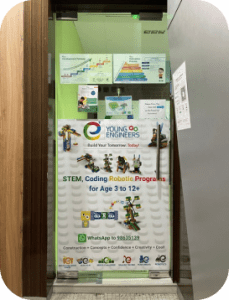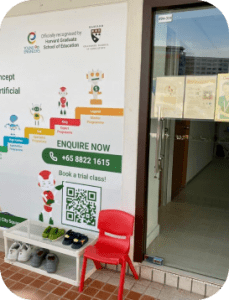As technology continues to advance, the impact of artificial intelligence (AI) is becoming more and more apparent. One AI technology that has gained a lot of attention in recent years is ChatGPT. This technology has already made its way into various industries, including healthcare, finance, and marketing, but what impact will ChatGPT have on education in the future?
It’s important to understand what ChatGPT is. ChatGPT is an AI language model developed by OpenAI, designed to generate human-like responses to natural language prompts. It uses a neural network to analyse and learn from massive amounts of data, making it capable of answering questions, writing essays, and even composing music. The more data it analyses, the more it improves its understanding of human language.
As the use of ChatGPT continues to grow, it’s expected to have a significant impact on education. Here are four ways ChatGPT may change the future of education:
- Personalised Learning Experiences
ChatGPT can analyse vast amounts of data to determine a student’s learning style and create personalised learning experiences for them. This will enable students to learn at their own pace, with content tailored to their individual needs. For instance, ChatGPT can create personalised learning experiences for students by adapting the difficulty level of the content to match their current abilities. So if a student is struggling with a particular topic in math, ChatGPT could generate practice problems that are slightly easier than the current curriculum to help build the student’s confidence and improve their understanding of the concept. As the student progresses, ChatGPT could gradually increase the difficulty level of the problems to match their improving abilities.
The use of ChatGPT also has many benefits for teachers. Here are some ways in which teachers could benefit from using ChatGPT to personalise learning experiences:
Time savings: Teachers save time by automating the process of creating personalised learning experiences for each student. This means rather than spending hours creating individual lesson plans and materials for each student, teachers can use ChatGPT to quickly generate content tailored to each student’s learning style.
Facilitate communication and collaboration: ChatGPT could be used to create virtual study groups that bring together students with similar learning styles or interests. These study groups could use ChatGPT to facilitate communication and collaboration, such as by providing a shared workspace where students can work together on assignments or discuss course materials. By promoting peer-to-peer learning and collaboration, ChatGPT help students develop their teamwork and communication skills, which are important for success in both academic and professional settings.
- Increased Accessibility
ChatGPT’s capacity to enhance accessibility is one of its most important benefits in the field of education. Students who may not have access to traditional education due to location, cost, or disabilities could benefit from the use of ChatGPT. With ChatGPT, students learn from anywhere in the world at any time. This technology also makes education more affordable, as it potentially reduces the cost of textbooks and other learning materials.
- Enhanced Collaboration
ChatGPT facilitates collaboration between students and teachers by providing real-time feedback and assistance. Gone are the days of relying solely on email or text messages to communicate with your classmates. With ChatGPT, students communicate in a more natural and human-like way, just like they would in a face-to-face conversation.
This fosters a more engaging and interactive learning experience, where students can bounce ideas off of each other, share their perspectives and learn from each other’s strengths.
Moreover, ChatGPT helps to break down cultural and language barriers that may hinder collaboration between students from different parts of the world. By providing real-time translation services and facilitating communication through various channels such as text, voice or video, ChatGPT creates a more inclusive and diverse learning environment where students can connect and learn from each other regardless of their background or language proficiency.
- Improved Assessments
As a student, you may have experienced the anxiety and uncertainty that comes with waiting for grades on an assignment or essay. With ChatGPT, that waiting game could become a thing of the past. Imagine being able to receive immediate feedback on your work, with insights and suggestions for improvement that could help you learn and grow as a student.
But it’s not just students who stand to benefit from ChatGPT’s assessment capabilities. Teachers, too, save time and reduce their workload by leveraging ChatGPT to grade assignments and provide feedback to students. This frees up more time for teachers to focus on creating engaging and personalised learning experiences for their students, rather than spending hours grading papers and providing feedback.
It’s an exciting time in the world of education as we witness the rise of AI and its impact on teaching and learning. ChatGPT, in particular, is an emerging technology that has the potential to revolutionise education in several ways.
With ChatGPT’s ability to analyse vast amounts of data, educators create personalised learning experiences that cater to individual student needs. This means that students learn at their own pace and in a style that suits them best, leading to improved learning outcomes and increased engagement. Additionally, ChatGPT’s accessibility breaks down geographical barriers, allowing students from all over the world to collaborate and work together seamlessly.
But the benefits of ChatGPT don’t stop there. Teachers can use this technology to streamline assessments and grading, providing students with instant feedback and insights for improvement. This reduces bias and promotes fairness in grading, creating a more objective and level playing field for all students.
Of course, there may be challenges and concerns associated with the use of AI in education, such as privacy and ethical issues. However, the potential benefits of ChatGPT are undeniable. As we continue to explore the capabilities of this technology, we can expect to see more innovative and effective ways of using ChatGPT to enhance education in the future.
It’s an exciting time to be involved in education, with ChatGPT paving the way for a more personalised, accessible, and collaborative learning experience. As we continue to explore the possibilities of AI in education, we can look forward to a future where students have the tools and resources they need to succeed while educators have the support they need to teach with confidence and effectiveness.





